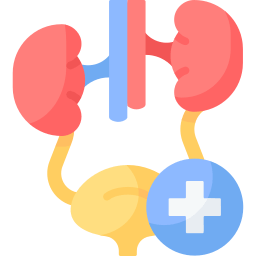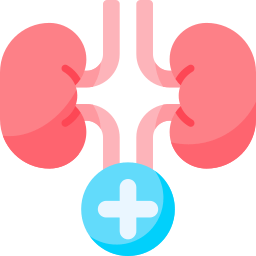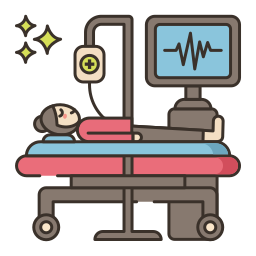Urology
Overview
At Charnock Hospital, our Urology Department specializes in the diagnosis, treatment, and management of disorders affecting the urinary tract in both men and women, as well as conditions related to the male reproductive system. Our dedicated team of urologists combines expertise with advanced medical technologies to deliver personalized care that meets the highest standards of medical excellence. From routine urological screenings to complex surgical interventions, we prioritize patient comfort and effective outcomes, ensuring comprehensive support throughout every stage of treatment.
Department Highlights

Advanced Laser Technology
Leading-edge 1000Watt Luminous Laser for precise HoLEP and Laser Lithotripsy treatments.

Minimally Invasive Procedures
Specializing in RIRS, TURBT, PCNL, and other minimally invasive surgeries for faster recovery and reduced risks.

Comprehensive Stone Management
Advanced lithotripsy and uroflowmetry services for effective kidney stone treatment.

Expertise in Uro-Oncology
Dedicated care for urological cancers with personalized treatment plans.

Reconstructive and Pediatric Urology
Specialized care for hypospadias and reconstructive surgeries in adults and children.

Leaders in Innovation
Pioneering advancements in urological treatments to enhance patient care and outcomes.
Why We’re the Best Choice?
We excel in urological care with advanced technology and specialized expertise. Our patient-centered approach ensures tailored treatment plans and superior outcomes, led by experienced urologists
Advanced Technology
Utilizing state-of-the-art 1000Watt Luminous Laser for precise procedures like HoLEP and Laser Lithotripsy.
Specialized Expertise
Offering comprehensive care in minimally invasive surgeries, uro-oncology, and reconstructive urology, ensuring tailored treatment plans.
Patient-Centered Approach
Dedicated to delivering superior outcomes through innovative treatments and personalized care, supported by a team of experienced urologists.
Our Expert Urology Specialists
Testimonials
FAQ
When is it advisable to consult a Urologist?
It’s advisable to see a urologist if you notice symptoms like blood in urine, difficulty urinating, persistent lower abdominal or back pain, or changes in bladder habits. These symptoms could indicate underlying urological conditions that require professional evaluation and treatment.
How frequently do kidney stones occur, and what are their causes?
Kidney stones can occur periodically. They form when substances such as calcium, oxalate, and uric acid in urine become highly concentrated and crystallize. Factors like dehydration, a diet high in salt or protein, and certain medical conditions can contribute to their formation.
What are the causes of prostate cancer, and can it be prevented?
Prostate cancer develops when cells in the prostate gland mutate and multiply abnormally. While the exact cause is unknown, risk factors such as age, family history, and ethnicity can increase susceptibility. Regular screenings, including prostate-specific antigen (PSA) tests, enable early detection when treatment is most effective.
Does diet impact kidney stone formation?
Yes, diet significantly affects kidney stone formation. Consuming excessive oxalate-rich foods (like spinach and nuts) or sodium can increase the risk. On the other hand, staying well-hydrated and maintaining a balanced diet rich in fruits and vegetables can help prevent kidney stones.
What measures can be taken to prevent prostate issues?
To maintain prostate health, consider a diet rich in fruits, vegetables, and low-fat dairy while limiting red meat and high-fat foods. Regular exercise and moderate alcohol consumption can also aid in prevention. Annual check-ups with a urologist, especially after age 50, are recommended to monitor prostate health.
How common are urinary tract infections (UTIs) in men, and what symptoms do they present?
While less common in men than in women, UTIs can still occur, particularly with age. Symptoms may include a burning sensation during urination, frequent urge to urinate, cloudy or foul-smelling urine, and pelvic discomfort. Prompt treatment with antibiotics is essential to prevent complications.















